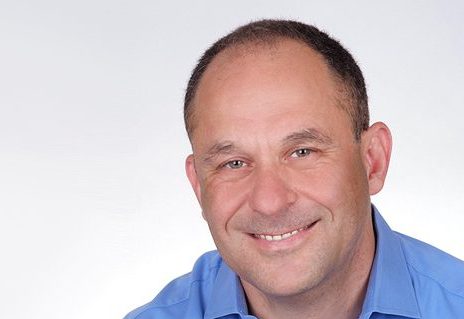It’s easy to imagine politicians and traditional lenders as old school Chatty Kathy dolls… you pull the string and utterances about the importance of small business come out of their mouths. You might hear: “Small businesses are the foundation of this country,” or, “small businesses are America’s engine.”
There’s a reason that politicians, and lenders like banks, at least pay lip service to the importance of small businesses. It’s because there are 31.7 million small businesses in the United States and they comprise 97.5 percent of exporters. Small businesses are America’s economic engine — that’s a fact. But, historically, they have had difficulty securing money from lenders. Oftentimes, they aren’t really acknowledged at all by the big banks and if they are, they are treated as economic tools for growth rather than as equals.
But what if a fintech company came along that respected small businesses as partners; that quickly and accurately measured them for their true value, and then worked to efficiently provide them the resources they needed, even before they actually needed it?
Cetin Duransoy is the Chief Operating Officer at Fundbox, which he describes as a fintech company that has small business etched into its genetic code. It serves almost 300,000 clients and uses the power of digitization, data science, and A.I. to form relationships with small businesses and ensures that they have the loans and lines of credit they require to operate successfully.
Even though many politicians and lenders extol the virtues of small businesses, what is Fundbox’s special X factor that helps it not only talk the talk but walk the walk? What is it that keeps Fundbox in that pocket seeing itself as a tool for clients rather than clients as a tool for the company? Find out on this episode of Business X factors.
Main takeaways:
- Partners are the Key: Strong partnerships with other companies or small and medium-sized businesses can help to scale businesses to new levels. For startups that tend to have a solid grip on innovation but struggle to reach key markets, it is important to have partners. A McKinsey study identified principles for successful partnerships, such as commitment and attention on both sides; bridging cultural and technological differences; pilot projects to find the sweet spots; key performance indicators should be defined and monitored; and, the focus should be on joint product development rather than general programs.
- The Little Mistakes Matter: Charlie Munger of Berkshire Hathaway said in one of his shareholder letters, “It’s remarkable how much long-term advantage people like us have gotten by trying to be consistently not stupid.” CEOs often focus on avoiding the big mistakes, but it is not just about avoiding the whoppers; it is execution or avoiding mistakes at every level, including at the micro-level that affects customers’ experience. Solving issues or ensuring execution at micro-levels do contribute to success or failure. Getting them right can lead to something greater down the road.
- Work Back from Customers’ Needs: Many companies figure out what to do next by building on what they’re really good at doing. George Bezos called it a “skills-forward approach” in one of his shareholder letters. The skills-forward approach says, “We are really good at X. What else can we do with X?” But this approach would not lead to developing fresh skills and give customers what they really want. To take your business to the next level, start by thinking about what customers want or need, and work backward to determine what you can build. When Amazon developed the Kindle, the company used this approach, hiring people with the right skills to engineer a device that customers needed rather than creating a product out of their existing skills.
Key Quotes:
“[Small business] is in our DNA. But why is it in our DNA? We recently did that survey with our whole employee base. What connections do you have to a small business, whether you run it, or an immediate family member does it? It turns out two thirds of our employees is either already running a business or they have immediate family who runs a small business.”
“If you want to be underwritten by a bank, you need to show three years of income statements, IRS-approved income statements, tax submissions, and the last two years becoming profitable. So, there’s a massive underserved market here.”
“Fundbox came up with the principle that we are not going to ask for a paper. Everything is going to be connected, bank account, connected accounting software. We have models that predict the risk. And then as a result of this, 98% of the applications are decisions within a under two minutes time frame.”
“If you look at 2015, how much transaction volume we have seen from those customers versus 2019, how much transaction did we see? We have seen more transaction volume in 2019 then in 2015, only from those customers who we have booked in 2014. This is also very unheard of. Typically, you book a cohort of customers and then the usage keeps dropping, and our secret sauce was our ability to find these customers when they were small. And we grow up with them. A 10,000-credit limit becomes a $150,000-credit limit. I read through so many customer testimonials. And that’s one thing that comes across that ‘Funbox has been with me throughout this whole journey.’”
“Decentralization of all these payment and lending services allow us to be able to build these new constructs and do a total innovation, if you will, as opposed to replicating the old business models in a digitized world.”
“Obviously, we as consumers have been more exposed to the B2C small businesses, but the B2B small business is almost the double size of the B2C small businesses, where the money being locked in unpaid invoices is a much bigger problem. So, there are macro factors. And within that, as you deep dive into the B2B space, those macro factors have been exaggerated and that’s how this underserved market is created.”
“It’s not about what your product is. How you expose the product into customers’ life cycle, basically, or customers’ day-to-day journey, then you can find the best customers and the predominantly underserved market. We were able to find great customers when they are relatively small, and they stick with us. We stick with them.”
“When it comes to execution, it is not what I say or another senior leader says, it is everybody makes micro decisions in their life that makes a company. And when you have such a large connection to small businesses from your employee base, any micro decision that they’re going to make, or macro decision that they’re going to make, is going to be working backwards from the customer needs based on their own personal experience.”
“How can you make this working back from the customer needs and turn it into a very easy product to not only apply, but also becomes an ongoing usage of the product. It becomes a tool to the small business. When a customer becomes a Fundbox customer, they now have a tool in their toolbox, as opposed to, I just borrowed the money. That’s the biggest differentiator as I think through now, we are a tool in their toolbox in perpetuity.”
Bio:
Cetin Duransoy is the Chief Operating Officer at Fundbox and is responsible for driving growth at Fundbox’s leading teams across, customer acquisition (direct and partnerships), credit, risk and sales and operations. Duransoy comes to Fundbox from Visa, where he was the company’s Head of Global Instalment and Loyalty Products. During his tenure, he oversaw the creation and development of the company’s instalment payment ecosystem that enabled issues to offer, and sellers to display instalment plans to cardholders, authoring the initial white paper and leading the program from conception to launch within three years.
He also spent 15 years at Capital One, where he held various leadership roles both in the credit card division and retail bank, including the Small Business Lending and Deposits teams. Earlier in his career, Duransoy was a Senior Marketing Manager for nthOrbit and a Senior Product Development Engineer at the Ford Motor Company in Istanbul, Turkey. He has an MBA from the University of Maryland – Robert H. Smith School of Business and a Mechanical Engineering degree from the Middle East Technical University.
—
Business X factors is produced by Mission.org and brought to you by Hyland.
For over a decade, Hyland has been named a Leader in the Gartner Magic Quadrant for Content Services Platforms, leading the way to help people get the information they need when and where they need it. More than half of 2019 Fortune 100 companies rely on Hyland to help them create more meaningful connections with the people they serve. When your focus is on the people you serve, Hyland stands behind you. Hyland is your X factor for better performance. Go to Hyland.com/insights to learn more.




